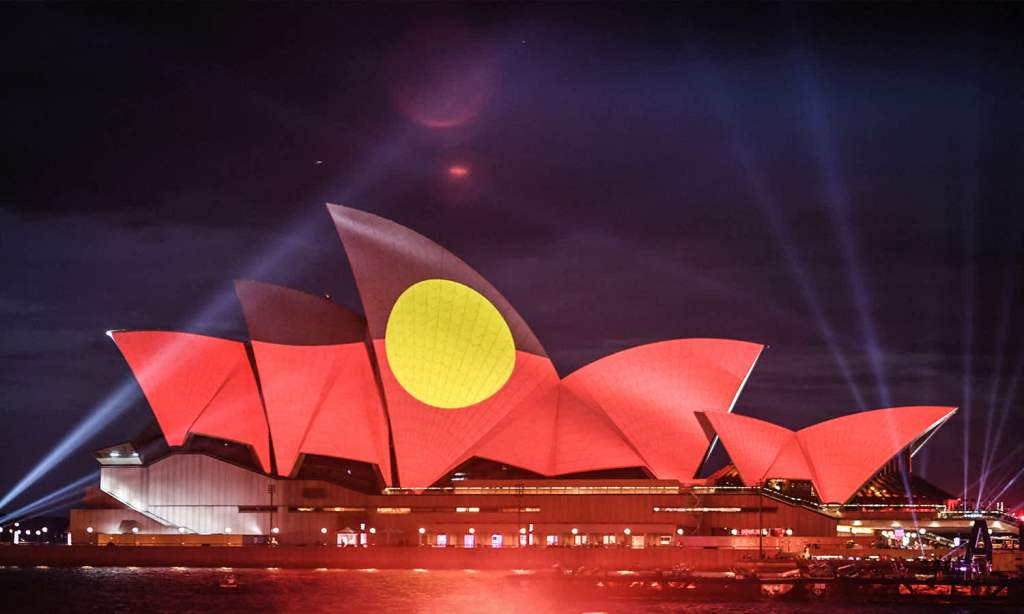You may have heard about a new campaign called an Indigenous Voice to Parliament. This is a long-running campaign that has been re-ignited as we get closer to the upcoming election.
From the Heart, a group founded to support the Uluru Statement From the Heart, are putting pressure on the government — or whichever government is formed after the election — to hold a referendum on the acceptance of an Indigenous Voice to Parliament.
From the Heart director Dean Parkin has said that “now it is time to give the people of Australia their say in the matter.”
“Ever since John Howard first raised the idea in 2007, political leaders have been talking about making this happen. It has been supported in principle by every prime minister since. There is nothing new about this commitment, it is just time to finally deliver”.
The group has launched a new ad, below, which you should start seeing on TV and digital channels soon.
So what exactly is an Indigenous Voice to Parliament? Where did the idea come from and what are the chances that it will actually go through? Here’s what you need to know.
An Indigenous Voice to Parliament
Australia is the only Commonwealth country that does not have a treaty with its Indigenous population, despite the fact that this has been called for, by both Europeans and Australia’s traditional custodians for decades.
In 1988, Bob Hawke was given the Barunga Statement, calling for a treaty, which he hung on his wall in Parliament House. He was convinced that Australia would have a treaty with the Indigenous population by 1990.
Midnight Oil and Yothu Yindi have been singing about it for over 25 years, John Howard promised it in 2007, and Malcolm Turnbull ultimately rejected it in 2017.
Turnbull’s rejection was of the Uluru Statement From the Heart, a two-year truth-telling process that was collaborated on by hundreds of people, demanding constitutional recognition in Australia.
One of the key requests from the statement was the need for Aboriginal and Torres Strait Islanders to be included in law-making decisions that affect them, their lands, and their communities. This is what the Voice to Parliament proposes and has grown out of the Uluru Statement as the primary focus of Indigenous rights in the country.
The Voice, which was finalised last year, would essentially establish two levels of advisory bodies: one local and regional, and one national. They would have to be consulted if a proposed legislation had a significant impact on Indigenous people.
The local and regional body would be made up of representatives from 35 regions across the country, while the ‘National Voice’ would have 24 members, including two from each state and territory.
“A Voice to Parliament will give Aboriginal and Torres Strait Islander people agency to help inform decisions that impact their lives,” From the Heart have said.
“Current policy-making does not have a systematic process for Aboriginal and Torres Strait Islanders to provide advice, meaning that policy is often made for Aboriginal and Torres Strait Islander people rather than with them.”
They say that such a system would “finally be able to close the gap that still exists between Indigenous and Non-Indigenous Australians.”
Will We Have a Referendum on an Indigenous Voice?
Ever since its inception, the Indigenous Voice idea and the Uluru Statement have had a rough time getting acceptance from politicians at the top.
Last year, as the final draft was unveiled, Prime Minister Scott Morrison refused to answer whether he would enshrine the Voice in legislation. Evidently, as Parliament has now finished, he wasn’t planning to. However, even Labor MP and Wiradjuri woman Linda Burney said that the Voice does not go far enough, and bares little resemblance to what was actually called for in the Uluru Statement.
At the time, Labor said that they would implement the Uluru Statement in full if elected, and have doubled down on that promise with their recent election pledges.
Morrison, on the other hand, has outright rejected the idea of a referendum on the Voice, saying on Monday: “It’s not our policy to have a referendum on the Voice, so why would I be doing that?”
It’s clear however that Australians want the Voice to become law, and support a referendum to do so. Data from the ABC’s Vote Compass has found that 73% of respondents “strongly” or “somewhat” agree that there should be constitutional change to give Indigenous people a greater say over laws that affect them.
This support has been growing too, as just 64% supported a referendum at the last election in 2019. Support however is much greater amongst Greens and Labor voters, while Liberal voters are much more split on the matter. Just 15% of them “strongly agree” on the topic.
In that sense, Morrison is right. His party and his voter base are likely not interested in enacting the Uluru Statement or the Voice to Parliament. However, in just a few short weeks, it may no longer be up to them at all.
Read more stories from The Latch and subscribe to our email newsletter.







